TEXAS GRAVEL
Rediscovering the Austin area by gravel bike.
Photos and words by Caleb Kerr
There are only two ways to beat the Texas heat in the summer: get up early, or wait until October. Since the second option isn’t going to cut it, we got up early to head southeast from Austin to Lockhart. Lockhart is famous for two things: barbecue and gravel, but we weren’t hungry yet.
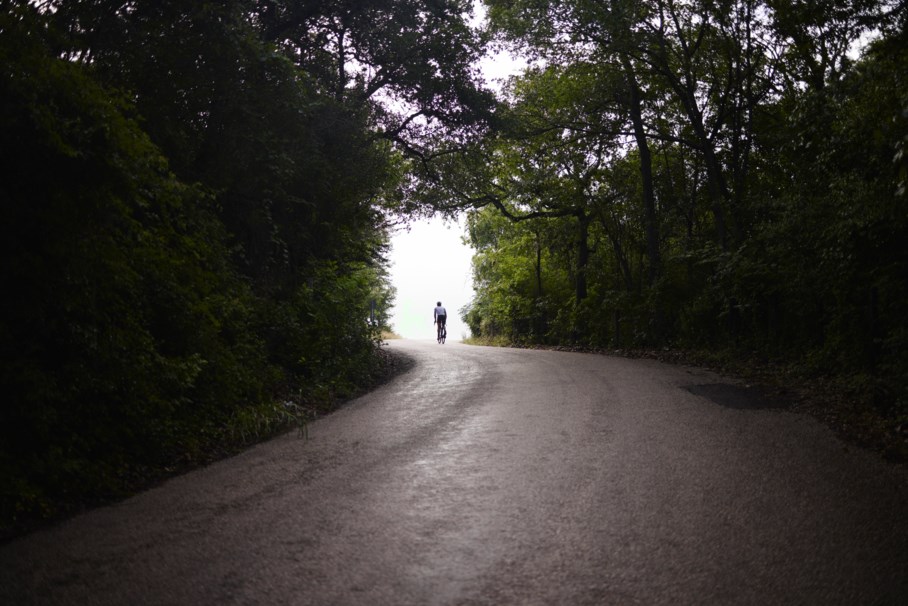
If you’re going to ride Central Texas gravel, you’ve got to be prepared for a little of everything. Here, we don’t have endless miles of groomed fire roads snaking through National Forests. No matter the route, a gravel ride in Lockhart is going to throw everything at you, from finely crushed hard packed gravel, to larger looser rocks, to soft sand, to pavement. Because of this, a gravel bike built to handle anything is king.
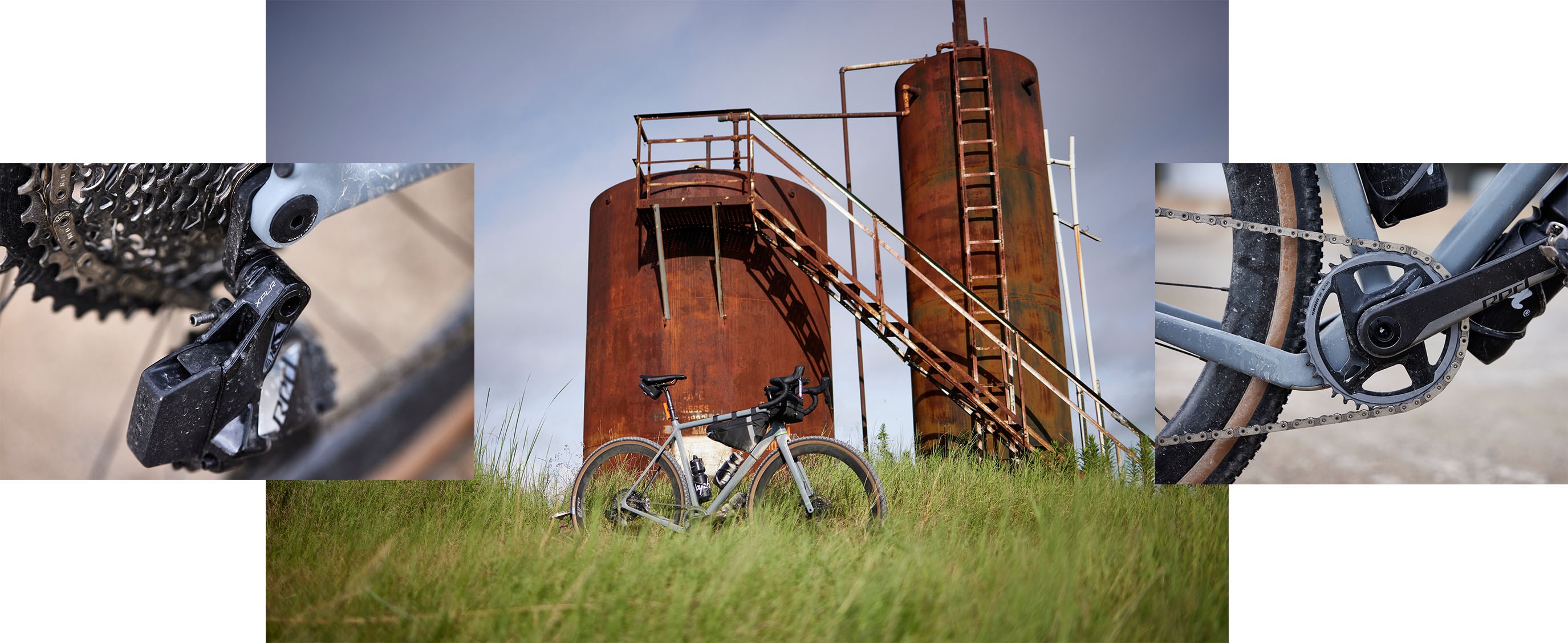
Lockhart was founded in the 1850s, and over the last 170 years, some gravel roads have become busier thoroughfares as the surrounding area developed. Some are freshly paved over. Some were paved a long time ago and have deteriorated to the point of almost becoming gravel again. But many roads are still pristine gravel. On any ride around here, you’re guaranteed to find a healthy mix of all of the above.
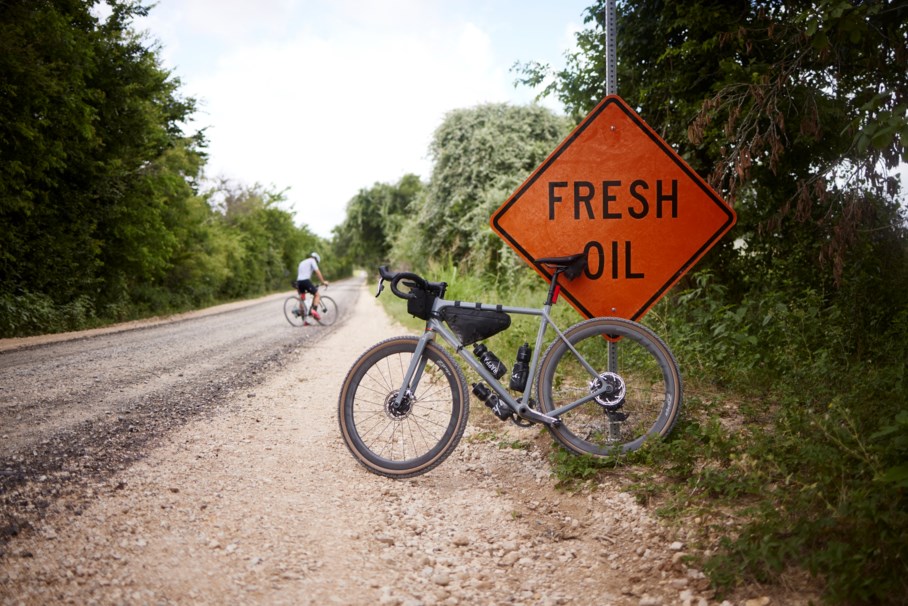
The town square in Lockhart is home to cafes and shops, all surrounding an impressive courthouse in the center, but the terrain becomes countryside within a few blocks when heading out of town. The road quickly turns from pavement to gravel, which is a dream to ride. My route primarily wound through pastures and farmland dotted with hay bales and cattle. Many sections of road have tree cover on both sides, which provides a much-appreciated respite from the sun, especially as the day wore on and the thermometer climbed.
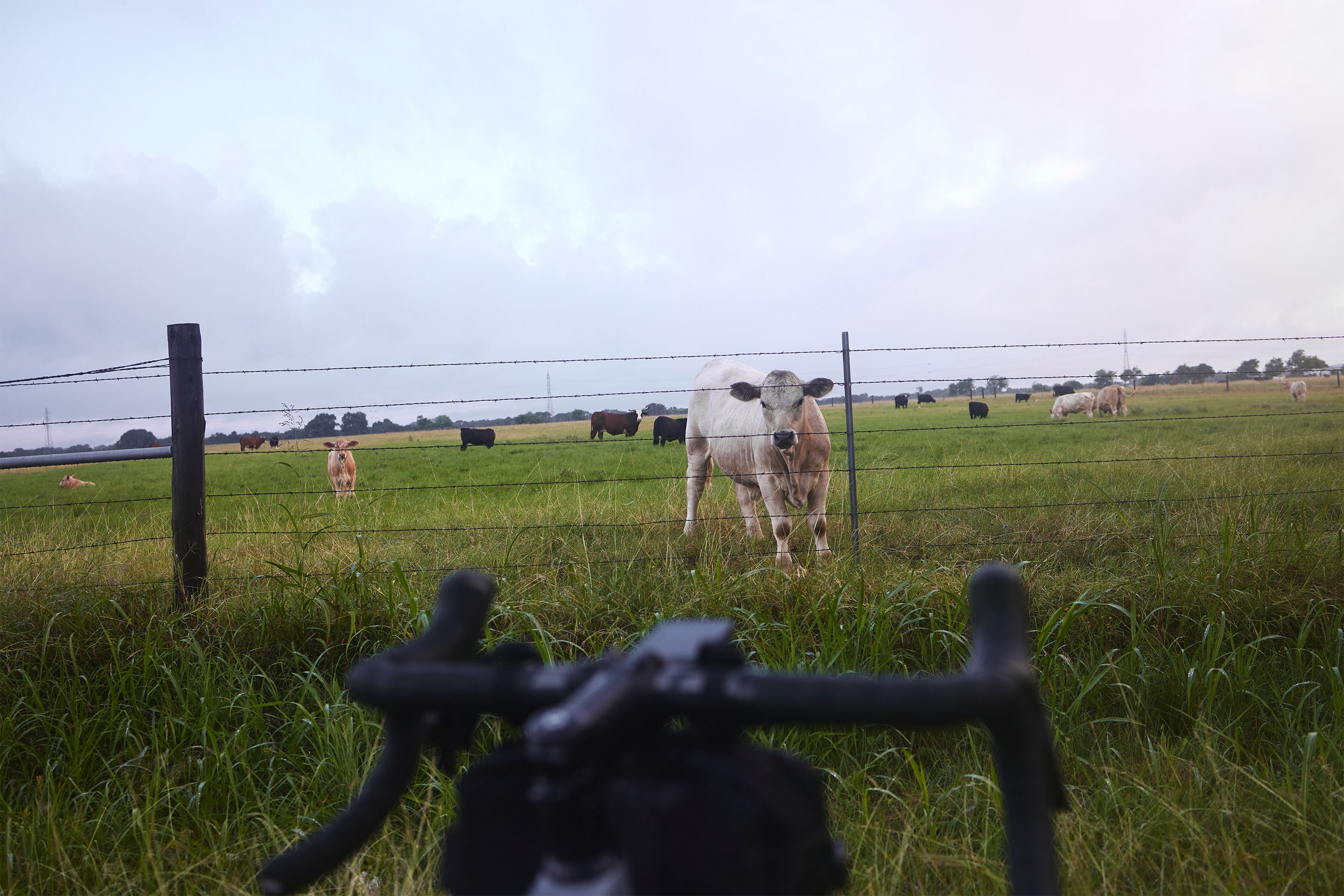
The sense of unknown adventure is what draws me to gravel—more focus on the journey and less on the destination. I grew up on a mountain bike on the East Coast and have been a road cyclist since arriving in Austin. The two disciplines have always occupied separate spaces for me, like estranged siblings who share genes but want nothing to do with each other. My gravel bike is their reunion, the realization that maybe they can get along after all. The gravel bike is the do-it-all bike I didn’t know I needed until I rode for the first time.
Gravel embraces the moments in between, the “let’s see what’s down that road” approach to cycling.
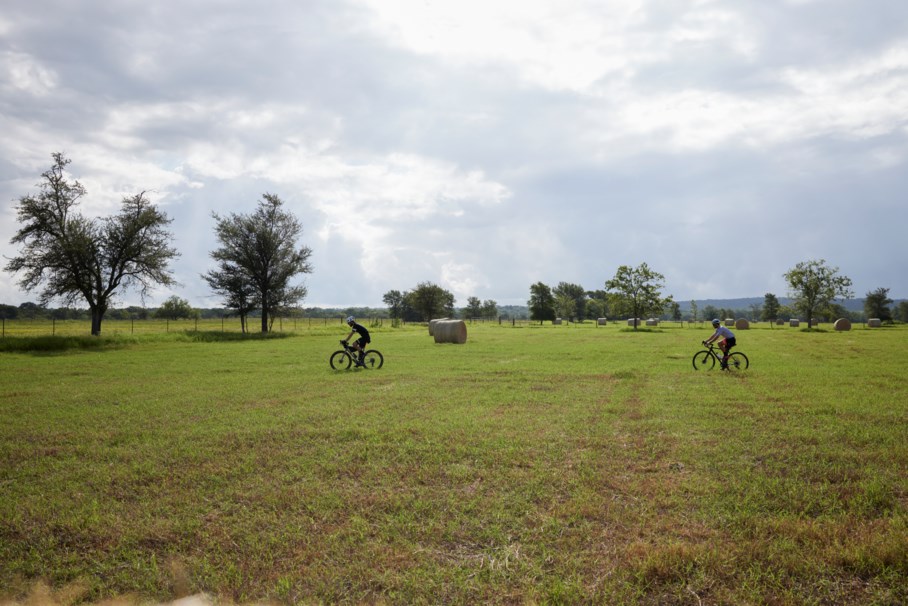
It’s not just the bikes that are unique, the people who gravitate to gravel are too. While some are out there to set records, the majority are in it for a good time. Stopping to say hi to curious cattle, take a dip in a steam, or just lay in the grass for a while to enjoy a snack.
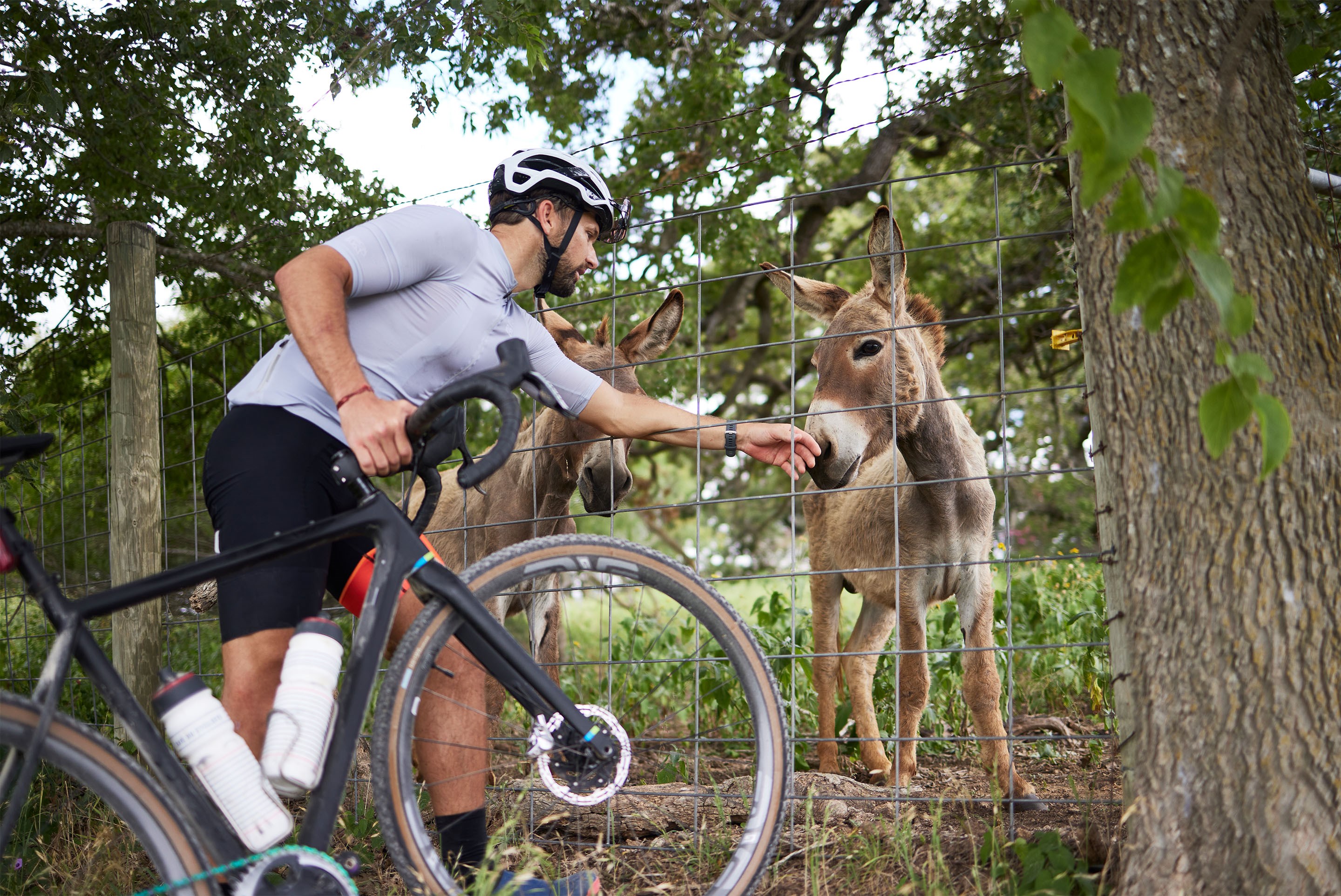
It’s amazing how quickly a large urban area like Austin turns to countryside. Austin hasn’t entirely avoided the urban sprawl that most big cities experience, but city fades and rural arrives surprisingly quickly, especially to the southeast toward Lockhart. The telltale single finger casually lifted from the steering wheel by drivers of passing cars, even to cyclists, signaling a friendly hello is a surefire sign that you’ve left the city. I was raised in rural Pennsylvania, and this gesture has always reminded me of home and the people I grew up around. Cars slow down and give a wide berth, which keeps the dust from kicking up. Whether that’s their intention, or they’re just giving us space, the space is always appreciated.
To replenish our water, we made a stop at the only convenience store on our 35-mile route, which resulted in a friendly chat with a farmer hauling a trailer full of wild hogs. I was 11 cents short when buying an ice-cold Coke in a glass bottle, but the cashier said not to worry about it. Another local reminded us to “drink lots of water, it’s hot out here.” It feels like everyone is on our team.
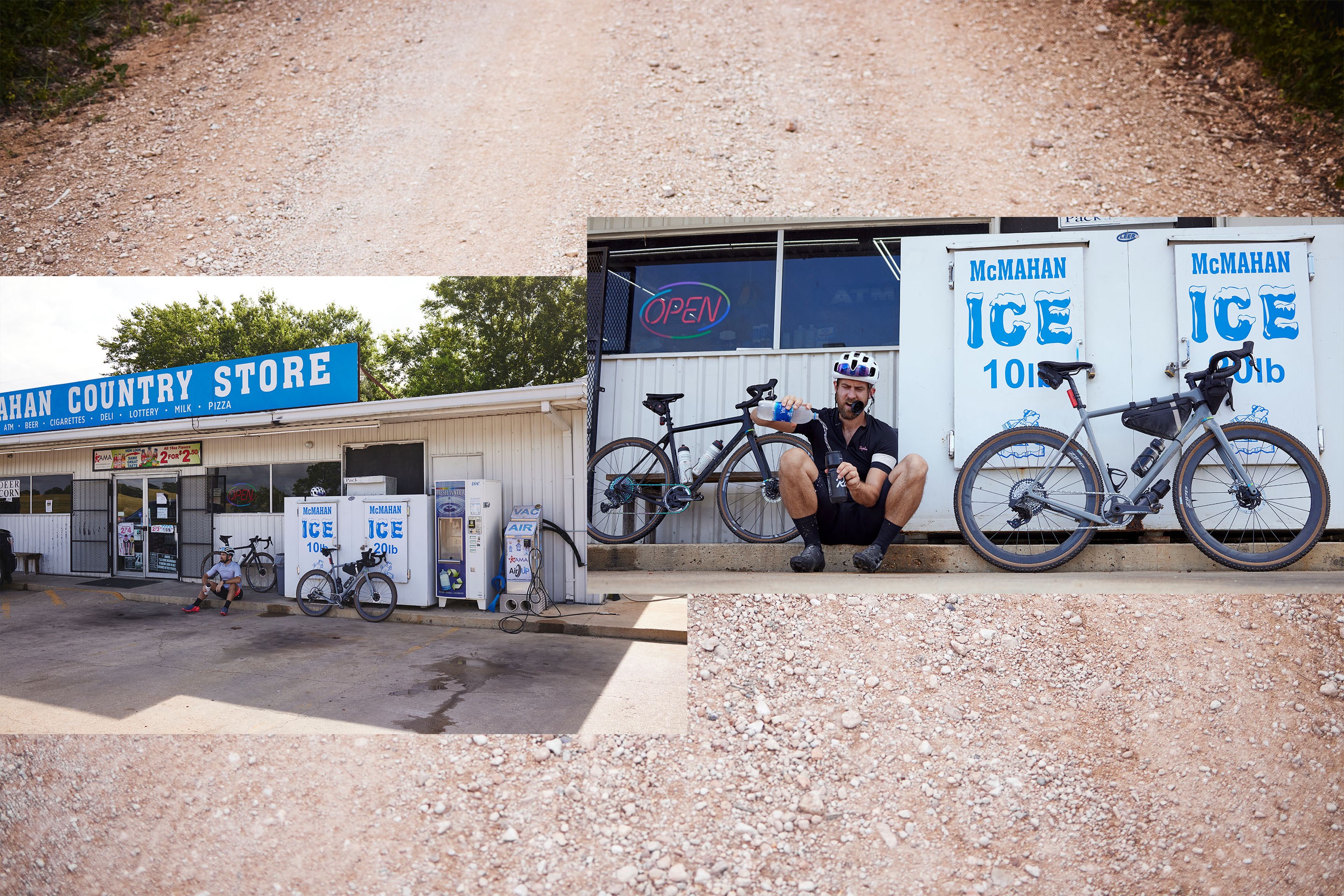
To be prepared for these beautiful but ever-changing roads, good equipment choices come into play. It astounds me that I can transition from loose gravel to smooth pavement on a knobby 42mm tire and still maintain speed and control. But the first-hand evidence is irrefutable—it works, and it’s fast, and it’s fun.
The 1x drivetrain that is becoming a popular configuration for gravel bikes is perfect in Texas. Our hills—if you find any at all—are short and punchy, and this route was remarkably flat, gaining only 800 feet over the 35 miles. My bike, an OPEN WI.DE., outfitted with the new RED XPLR eTap AXS rear derailleur and the matching 10-44T cassette, was perfect for Lockhart. Central Texas is referred to as the Hill Country, but Lockhart’s gravel is generally flat or at most, rolling. It’s easy to get into a groove and we found that covering ground quickly was a breeze.
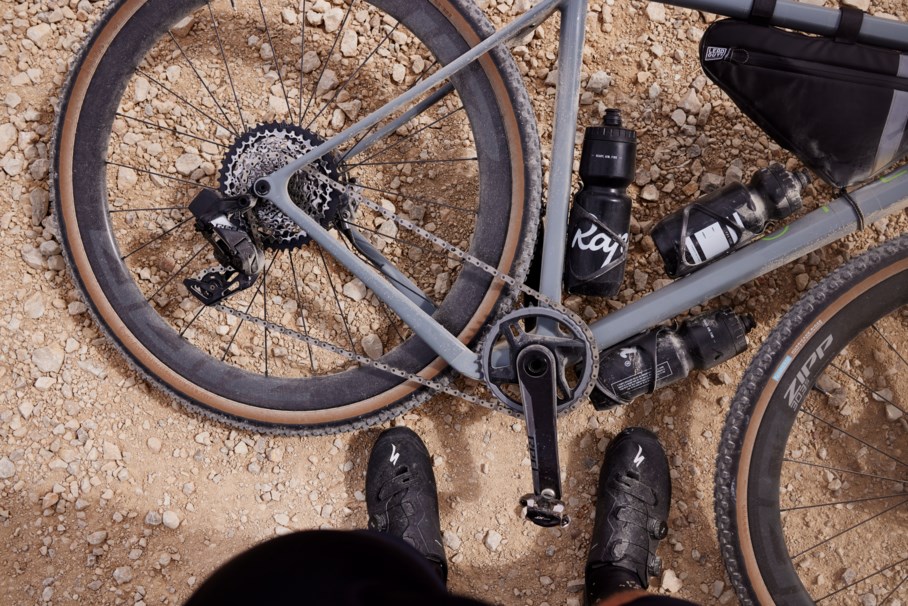
Nothing is forever, and that holds true for gravel roads. Some old farm roads are getting paved over with a smooth layer of asphalt, while others get a rough layer of tar and chip, and some are mostly left alone. Texas floods can cause massive washouts, when just days before, the arid landscape was dry as a bone. These harsh conditions can wreak havoc on pavement, essentially turning it back into gravel, eventually. Gravel survives, and as Austin’s metro area extends its reach, I hope Lockhart’s heart of gravel remains intact. Time in the saddle provides a valuable space for peace for me. The to-do lists are swept away and swallowed by the steady crunch of Texas gravel under my tires.
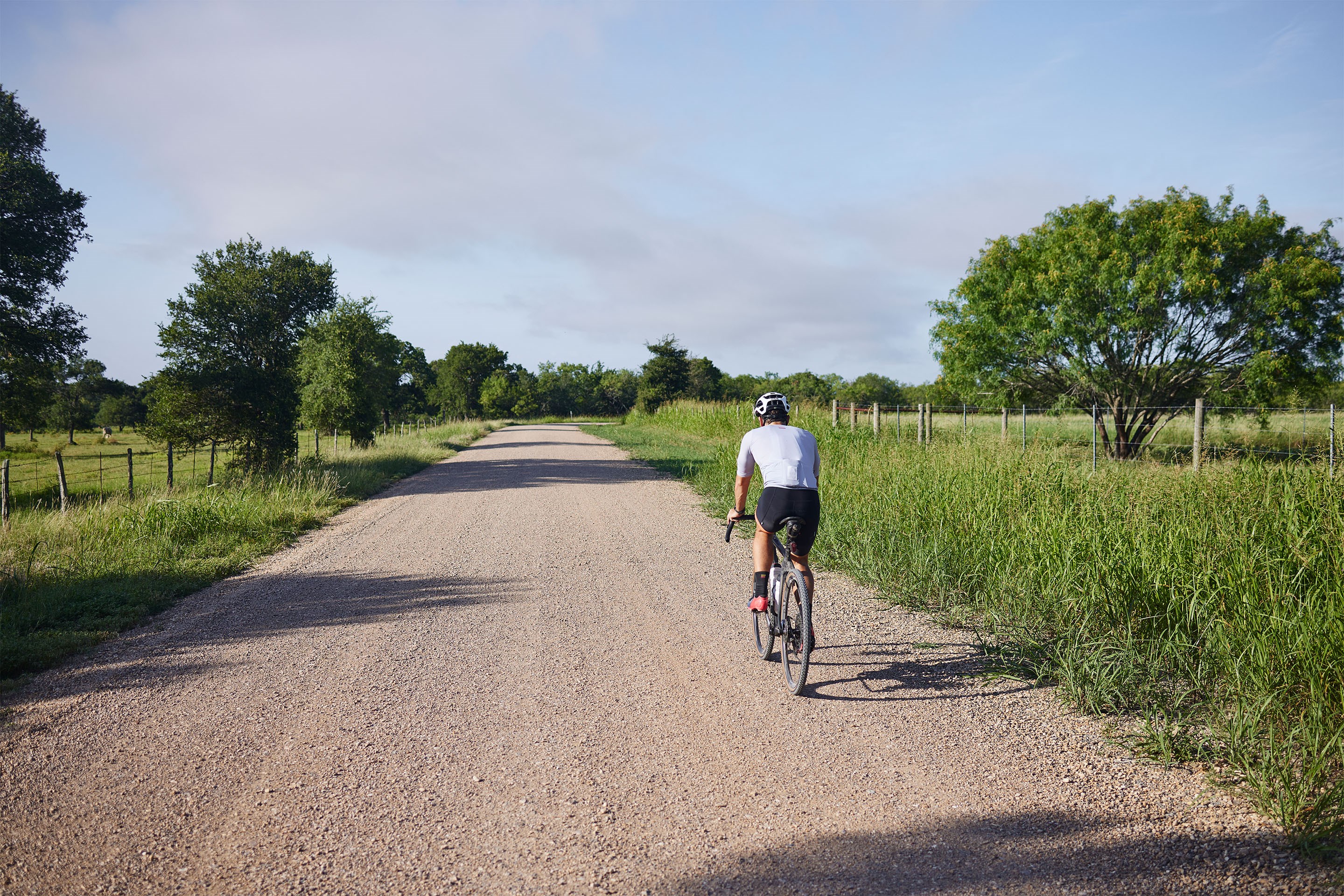
This ride took place on the traditional lands of the Nʉmʉnʉʉ, Jumanos, Tonkawa, Ndé Kónitsąąíí Gokíyaa, Coahuiltecan, and Sana people. Caleb Kerr is a photographer based in Austin, TX, who likes to work and play in the American West with his camera and bike. When he’s in Austin, you can catch him on Saturday mornings riding with Breakfast Club. You can find his work at calebkerr.com and @calebkerr.